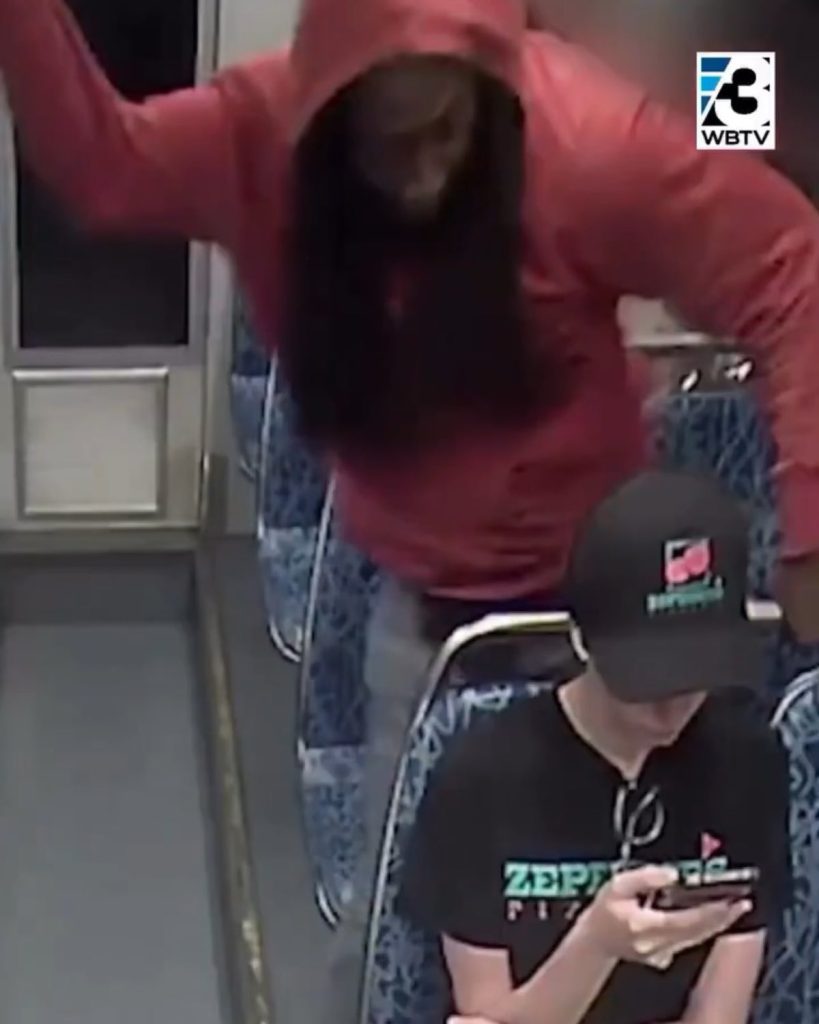The Tragic Story of Iryna Zarutska, the Ukrainian Refugee Stabbed to Death on a Charlotte Train
When 23-year-old Iryna Zarutska boarded a light rail train in Charlotte, North Carolina, she was doing something so ordinary, so familiar, that no one could have imagined it would end in tragedy. Iryna had come to the United States to escape the horrors of war in Ukraine. Like so many others fleeing violence, she believed America would be the place where safety and peace could finally be found. But on August 22, 2025, her life was brutally cut short, and the heartbreaking story of her final moments has since shaken an entire community.
Authorities confirmed that Iryna was fatally stabbed by a man she had never met, a 34-year-old named Decarlos Brown Jr. He was homeless, had a long history of arrests, and was no stranger to the criminal justice system. Witnesses said the attack came suddenly and without warning, as Brown pulled out a knife and lunged at her. Surveillance footage showed how quickly it unfolded, leaving those who saw it stunned by the senselessness of it all. She died on the train that day, and for many, the question has been hauntingly simple: how could this have been allowed to happen?
What has emerged since the attack is a troubling picture of a man with a long history of run-ins with the law. Brown had been arrested more than a dozen times before and carried convictions for robbery and larceny. In January of this year, he was even detained after making bizarre claims about a “man-made material” inside his body that he said was controlling him, an incident that raised concerns about his mental health. Prosecutors now admit that systemic weaknesses in how mental illness is handled in the courts and in the community played a role in allowing someone like Brown to remain on the streets. Mecklenburg County District Attorney Spencer Merriweather has spoken openly about the strain on resources and the challenges of keeping the public safe while also trying to care for people struggling with serious mental health issues.

For the people of Charlotte, and for Iryna’s family who entrusted their daughter’s future to a new country, the grief is immeasurable. She survived war, only to face violence in a place where she had hoped to rebuild her life. Her death has already led to calls for change, with the Charlotte Area Transit System announcing new measures to improve safety on public transportation. These include more visible security, enhanced surveillance, and stronger police presence, a recognition that something has to shift before another innocent life is lost.

Mayor Vi Lyles described the stabbing as a senseless and tragic loss, thanking the public and the press who chose not to circulate the graphic video footage of the attack. She stressed the importance of compassion in moments like this, pointing out that it is far too easy for communities to be desensitized to violence when it becomes just another headline. Her words carried weight, because behind every tragedy is a real person whose life mattered, whose family is left to pick up the pieces.
The story of Iryna Zarutska is not just one of shocking violence, but also a reflection of how fragile safety can feel, even in places where we expect it most. A young woman who dreamed of a better future found herself caught in a system that failed to protect her. And while her life has ended, the lessons from her death must remain. America promised her a chance to live free from war and fear. The challenge now is whether that promise can still mean something for those who come after her.


